UNDP partners with CEPA to host the 3rd National Protected Areas Forum in Port Moresby
Joining Forces for the Preservation of Protected Areas
June 19, 2023
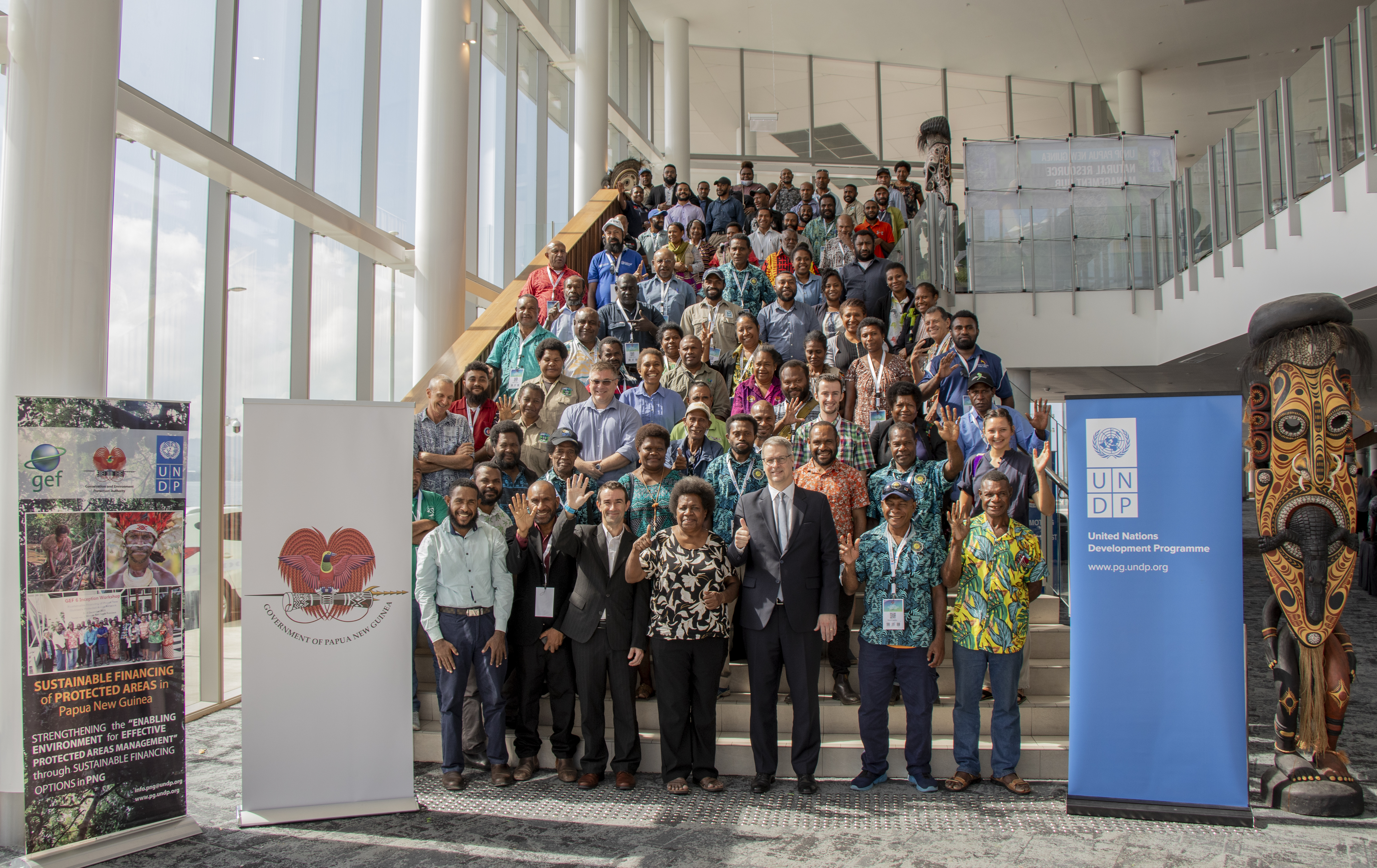
Participants at the 2023 Protected Areas Forum at the Apec Haus in Port Moresby.
“When it comes to biodiversity, Papua New Guinea is one of the most unique countries in the world. The kind of flora and fauna we have here is found nowhere else in the world. I want our future generations to also be able to enjoy them and that’s why I am so committed to protecting our country’s biodiversity.”
This is how Danny Nane, a Community Conservation Coordinator from the local NGO, the Tree Kangaroo Conservation Programme, described his motivation for coming to the Protected Areas Forum in Port Moresby this year.
The forum, which took place at the APEC House between 6-8 June 2023, was jointly organized by the Conservation and Environment Protection Authority (CEPA) of the Government of Papua New Guinea, UNDP, the Global Environment Facility (GEF) for the third time. Over a hundred representatives from the government, local and international NGOs, the private sector and local grassroots movements attended the forum to find ways to improve the management of the country’s protected areas.
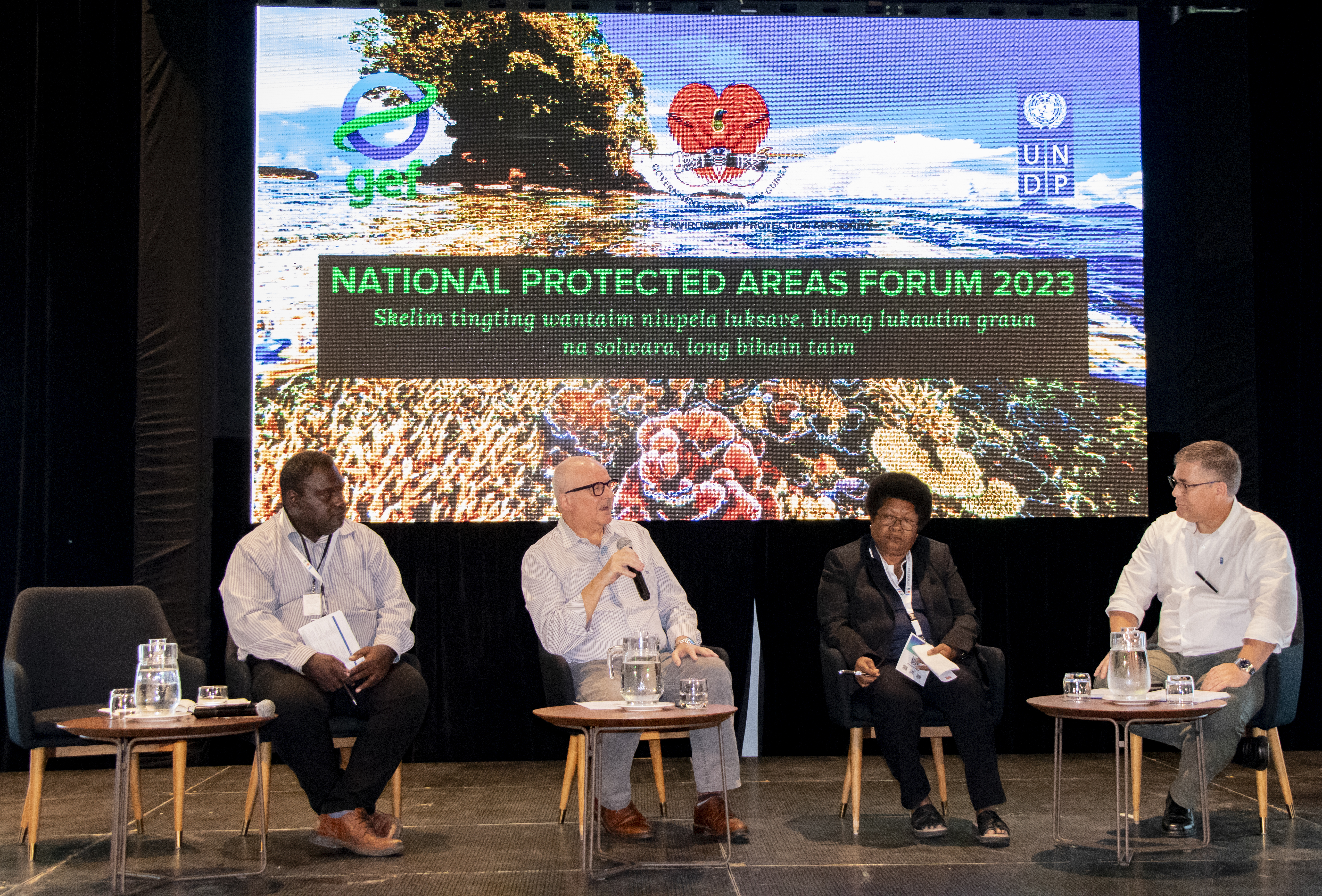
This year, the Protected Area Forum focused on issues surrounding national policy, land-use planing and blue economy
Since gaining its independence in 1975, Papua New Guinea has established over 60 protected areas across the country to conserve its environmental and cultural heritage. However, due to limited resources and capacity, as well as inadequate coordination between stakeholders responsible for the areas, much of the natural and cultural riches within the protected areas remain threatened to this day.
“This forum provides us conservation practitioners an amazing opportunity to come together and help each other. By giving presentations on our work, we can learn from each other and bring good practices back into our own regions. We need these networks to do conservation work in Papua New Guinea,” said Mr. Nane, whose NGO works with local communities in Morobe Province to protect the habitat of the Matschie’s tree kangaroo.
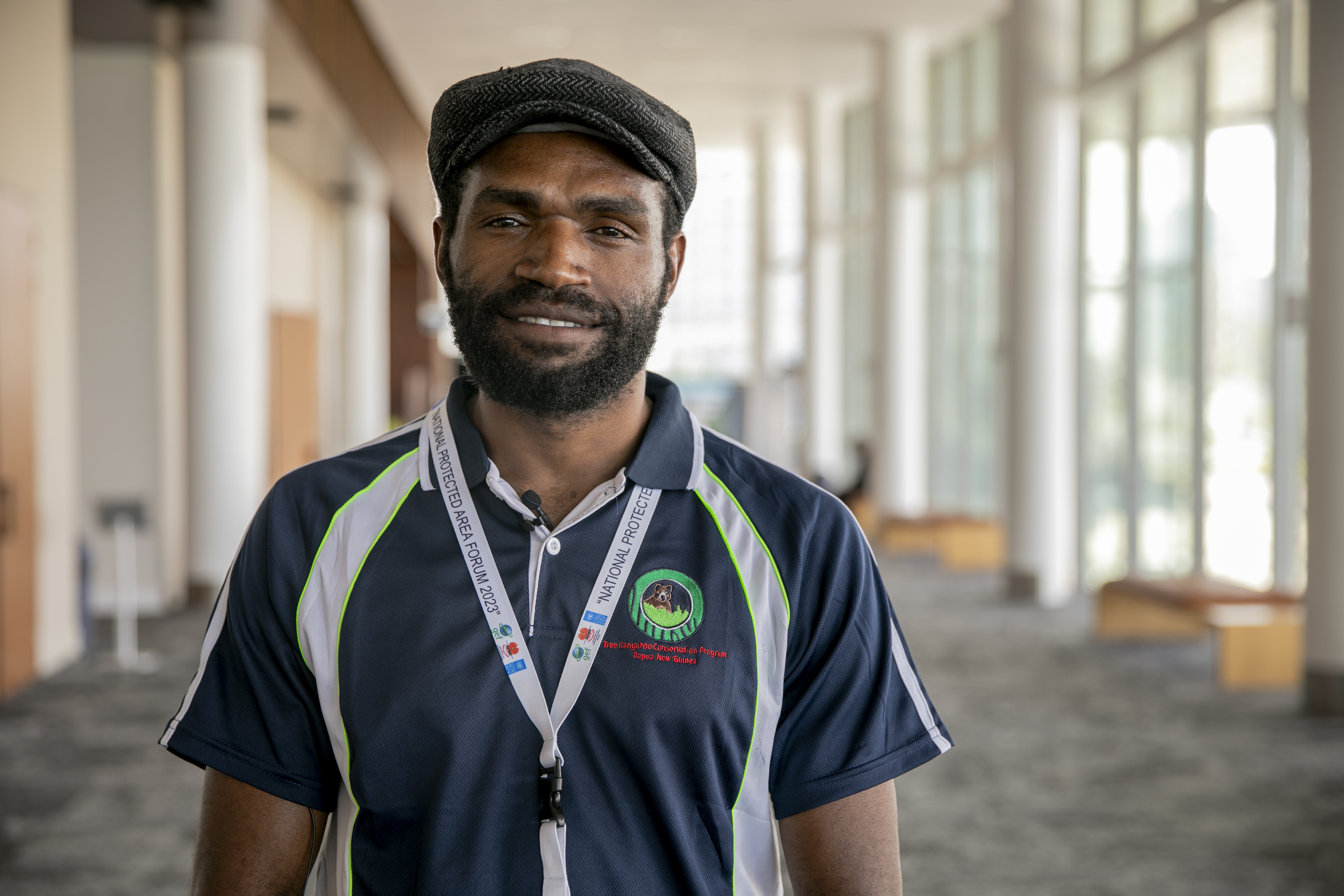
For Danny Nane from the Tree Kangaroo Conservation Programme, the Protected Areas Forum provided a precious opportunity to learn from the work of other NGOs
Safeguarding rainforests through ecotourism
This year, the forum focused on three key issues: national policy, land use planning, and blue economy. Mr. Warren Dipole, the owner the Ulumani Treetops Ecolodge in Alotau, Milne Bay Province, traveled all the way from the southern tip of the country to advocate for improved protections for the country’s rainforests.
“Because of logging companies, there is so much destruction of the rainforests where I come from. My family and I wanted to show local people a way of earning an income without destroying the forests, so we started an ecolodge in 2000,” Mr. Dipole said.
Since opening the ecolodge, he has taken thousands of tourists to a protected rainforest nearby, which remains home to one of the holy grails of birdwatchers around the globe: the raggiana bird of paradise.
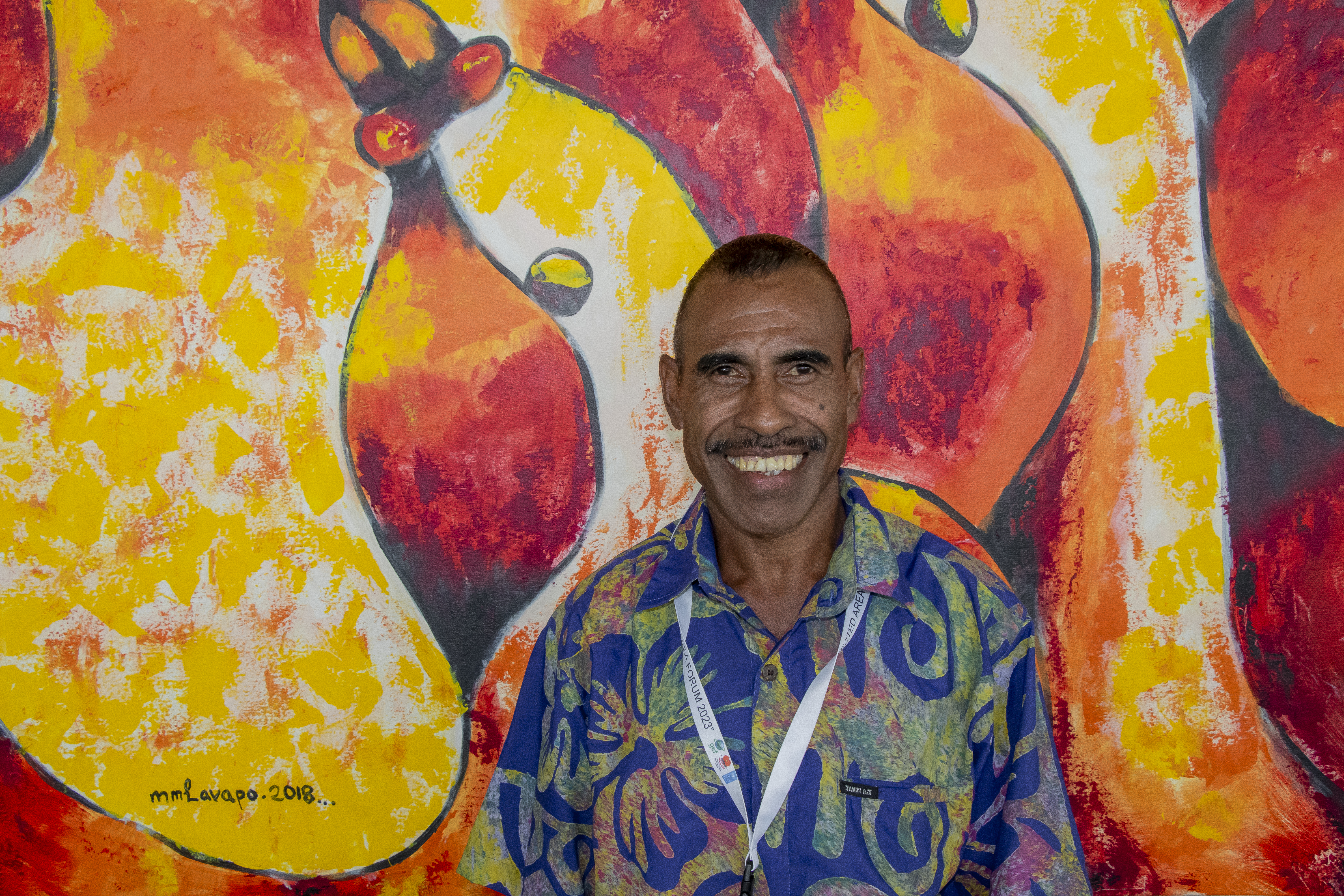
By being a passionate advocate for ecotourism, Warren Dipole has combated the logging of rainforests for two decades.
By passionately advocating for the sustainability of ecotourism, he has slowly witnessed the attitudes of some of the local landowners change. “They understand that the more tourists we take there, the more income they will be able to make from the site fees. So they have an incentive to not log the forests,” he explained.
Despite the promising developments, Mr. Dipole admits that many challenges remain to ensure the rainforests are preserved. Climate change has made weather patterns in the region unpredictable and marketing a remote ecolodge is often challenging. “I hope that by coming to the Protected Areas Forum, I can find some financial partners who will be able to increase the visibility of our ecolodge,” he concluded.
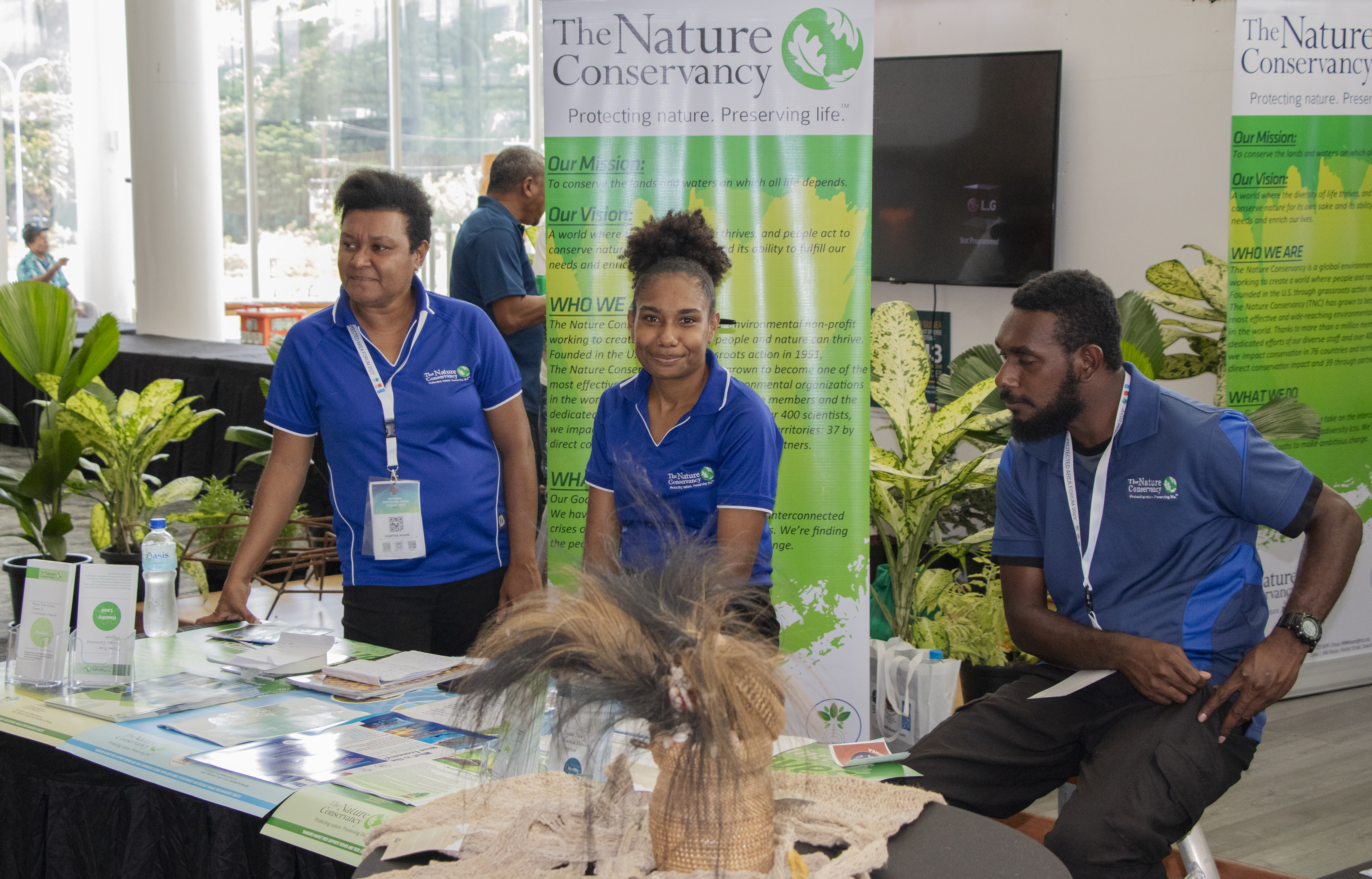
The Nature Conservancy information booth at the Protected Areas Forum
Boosting support to protect Bootless Bay
Establishing new networks was also the goal of Jimmy Matapi Peter, the founder of Lukautim Yut Komuniti Envaironmen Sevis (LYKES), before he came to the forum. Through its work, LYKES provides unemployed and uneducated youth opportunities to participate in activities and trainings to preserve the country’s mangroves and marine life.
“We are here to talk about a special project we are conducting to protect the Bootless Bay area. Our goal is to make it the first maritime sanctuary in Papua New Guinea. Port Moresby is a fast-growing city and Bootless Bay is one of the last beautiful places in it. We need everyone on board to save its mangroves, sea grass and coral reefs,” he explained.
“As we are just a local NGO, a lot of our work is unfunded, and we depend on our own resources. We hope that by coming to the Protected Areas Forum, we can get more publicity and be invited to participate in different initiatives at the community level,” Mr. Peter added.
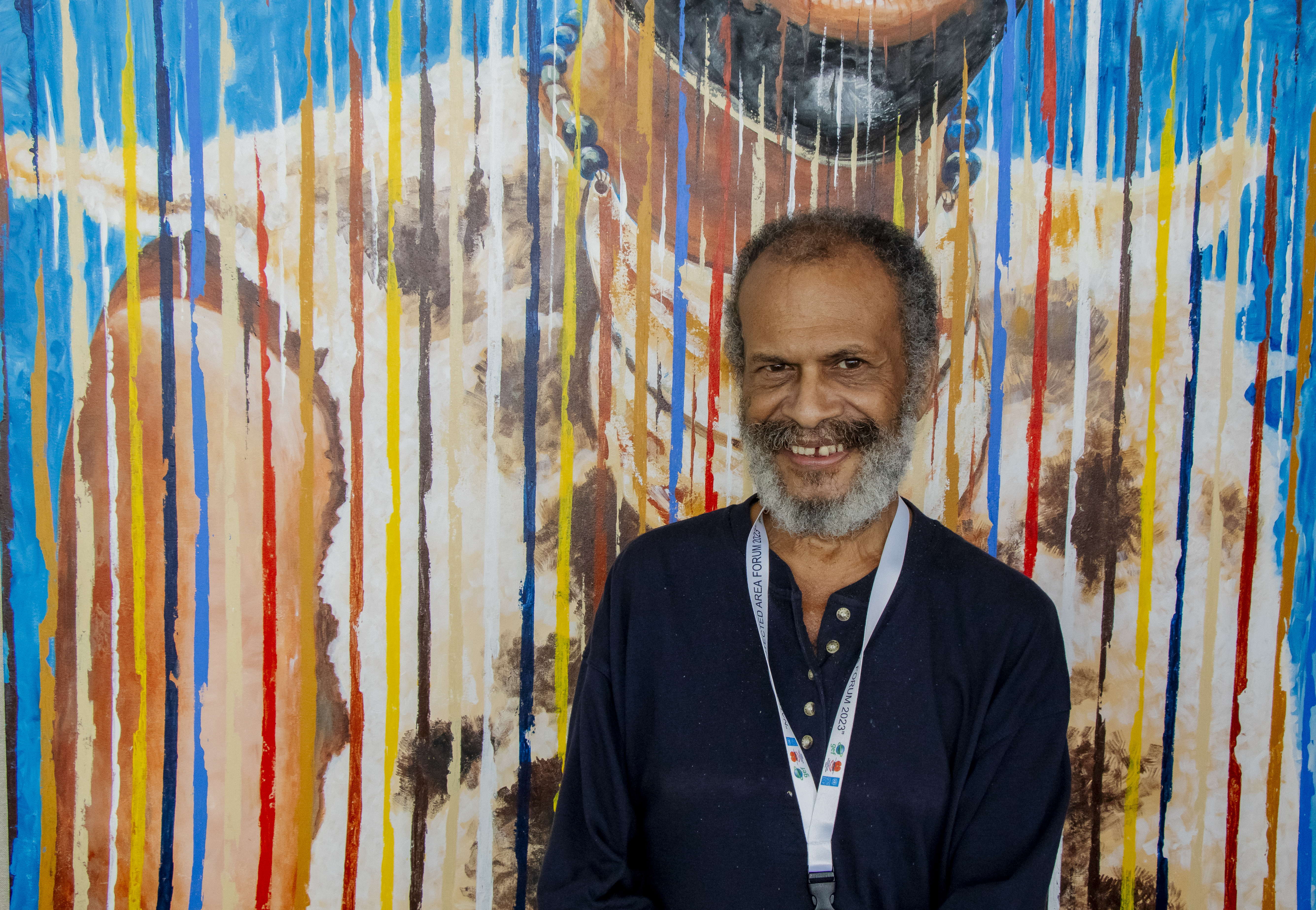
For Jimmy Peter of LYKES, the Protected Areas Forum presents a critical opportunity to find ways to participate in community-led initiatives
Mobilizing youth to save our ocean
The third day of the forum coincided with World Oceans Day and was entirely devoted to issues surrounding blue economy and the sustainable use of maritime resources. As part of the activities, UNDP and CEPA organized a Blue Innovation Challenge, where students from Port Moresby were asked to come up with innovations to protect the country’s ocean.
The victory went to a group of girl students from Port Moresby National High School of Excellence for their innovation to mandate the use of biodegradable fishing nets across Papua New Guinea. The students celebrated their victory during a clean-up event, which UNDP, CEPA and the National Maritime Safety Authority hosted at Ela Beach a day after the forum.
“Many of us are from the coast and in our villages, we often see rubbish all over our beaches. Sometimes people even bury their plastic waste in the sand. We wanted to come up with an innovative and inexpensive way to solve this problem and that’s how we came up with the idea of the biodegradable nets,” stated Idau Masere, one of the members of the groups after the victory. “It’s so special that the victory went to an all-girl group of humanities students. I hope we can be an inspiration to all girls and humanities students in the country,” she added.
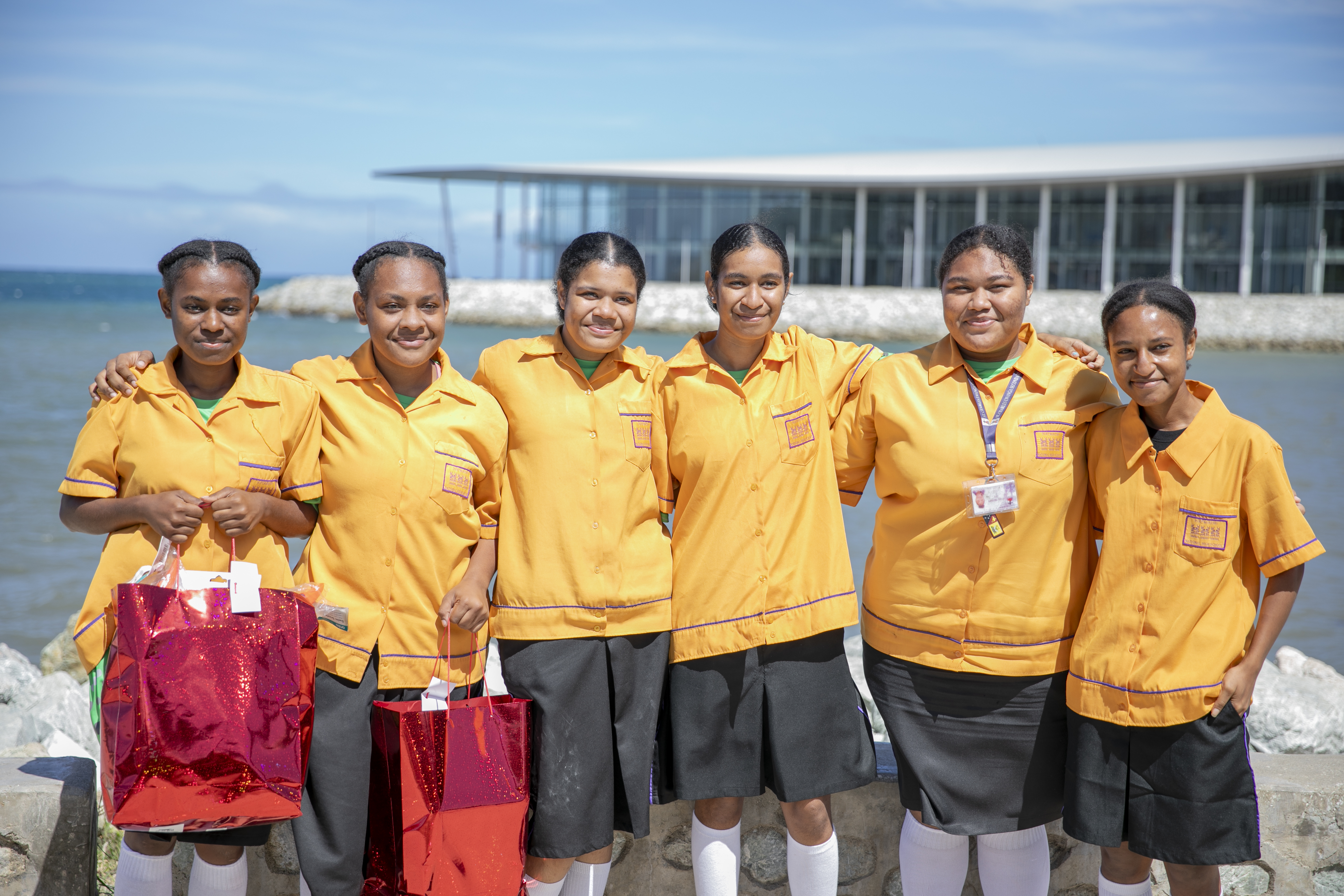
As a prize for winning the Blue Innovation Challenge, the girls from Port Moresby High School of Excellence will get an opportunity to spend a weekend at the Loloata Island Resort
Fostering cooperation from the capital to the local communities
At the end of the successful week, UNDP Resident Representative in Papua New Guinea, Dirk Wagener emphasized the unique opportunity that the forum provides for the country’s determined environmentalist to unite for a single cause. “You are here to engage with each other, to challenge each other and ultimately to collaborate with each other. Papua New Guinea’s biodiversity needs a voice and you are that voice. Make this voice stronger and make it heard,” he stated.
The Director of Sustainable Environment Programmes of CEPA, Kay Kumaras Kalim also commended UNDP for the commitment it has made to hosting the forum and supporting the government in engaging with communities over the past years. “For us to be successful in preserving our biodiversity, it is crucial that the policies the government puts forward here in Port Moresby are implemented even in the remotest of communities in the provinces. UNDP has been very supportive in ensuring that we engage with all of you on the ground,” she concluded.
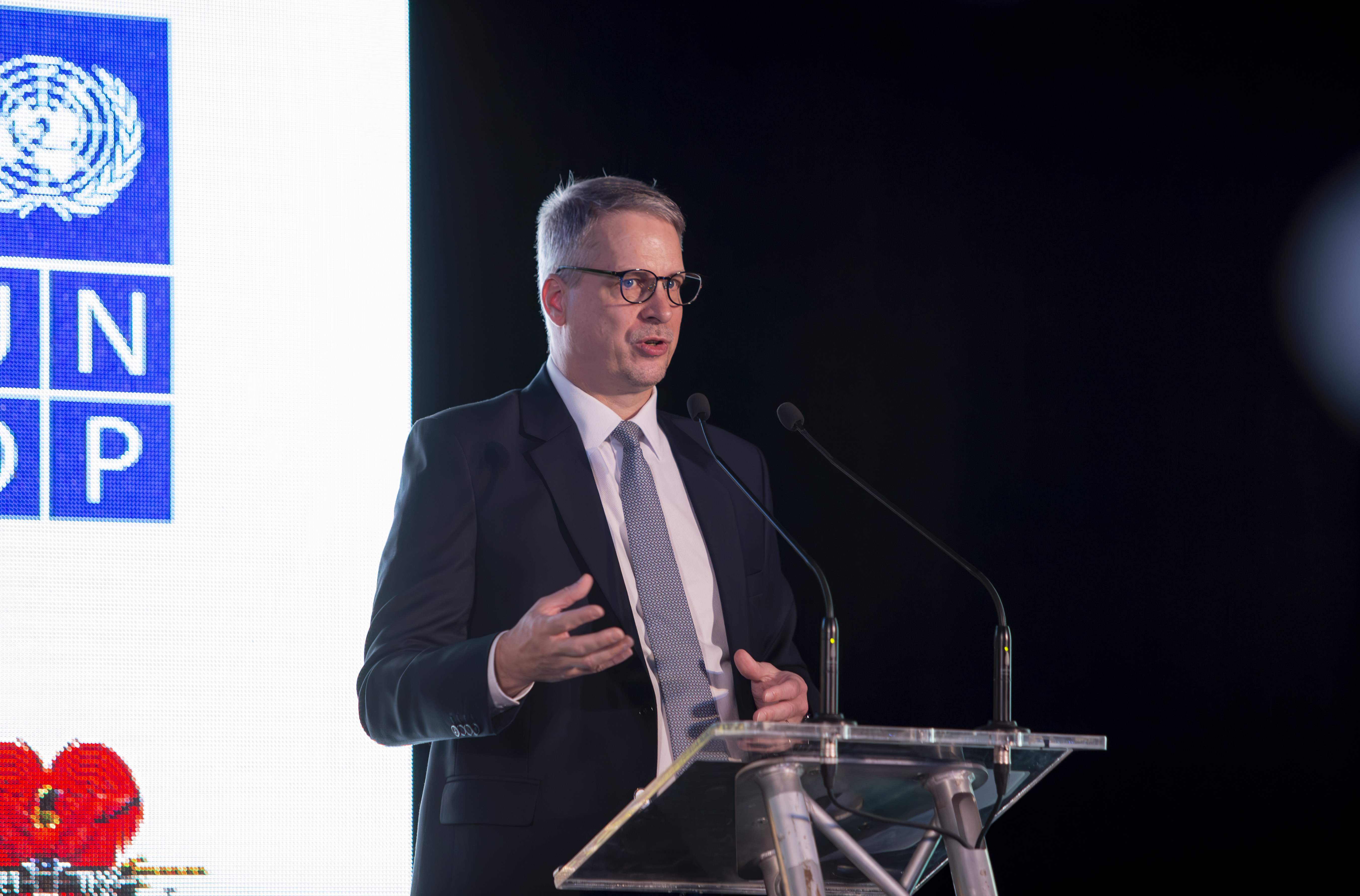
UNDP Resident Representative, Dirk Wagener, praised all the participants for their commitment to preserving Papua New Guinea’s unique natural environment.
“You are here to engage with each other, to challenge each other and ultimately to collaborate with each other. Papua New Guinea’s biodiversity needs a voice and you are that voice. Make this voice stronger and make it heard."UNDP Resident Representative, Mr. Dirk Wagener

 Locations
Locations










